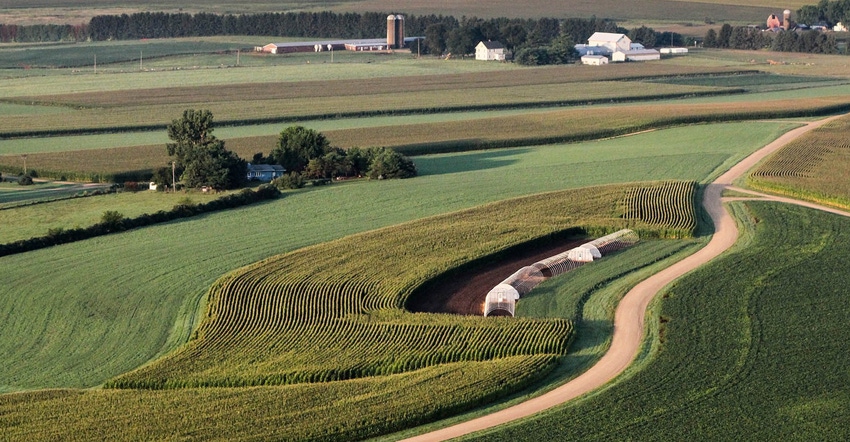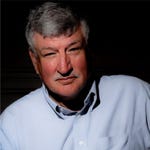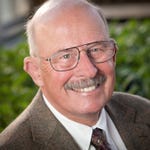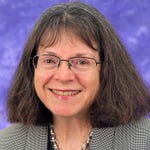September 7, 2022

The University of Wisconsin-Madison College of Agricultural and Life Sciences has selected seven people for its 2022 Honorary Recognition, Distinguished Alumni and Distinguished Service awards. CALS will present the Honorary Recognition Award to Andy and Steve Diercks, Liz Henry, and George Siemon; its Distinguished Service Award to Richard Straub; and its Distinguished Alumni Award to Barry Jacobsen and Jenny Scott.
These are the highest honors bestowed by the college. The Honorary Recognition Award, now in its 112th year, recognizes individuals who have made significant contributions to their professions, their communities and the university. The Distinguished Service Award, first given in 1994, recognizes meritorious service by CALS faculty and staff members. The Distinguished Alumni Award, which recognizes lifetime achievement and service by college graduates, was established in 2009.
The awards will be presented at the CALS Honorary Recognition Banquet on Oct. 13 in Union South. Get more information and register online.
Honorary Recognition awardees


The Diercks family led the effort to establish the Wisconsin Potato and Vegetable Storage Research Facility at the UW-Madison Hancock Agricultural Research Station, and they were critical to the establishment of the Wisconsin Potato Industry Board-Wisconsin Distinguished Graduate Fellowship Program and the UW Foundation Wisconsin Potato Industry Donor Advised Fund. They have served on national potato boards and represented Wisconsin in initiatives at the national level.

In 2005, Henry became the associate director of the university’s Renk Agribusiness Institute, where she developed the Renk Scholarship Program, revived the Ag Business Management Club and assumed leadership of the annual Agricultural Outlook Forum. Her proudest achievement was establishing the undergraduate Certificate in Business Management for Agricultural and Life Sciences in collaboration with the Department of Life Sciences Communications and the Wisconsin School of Business.
Through her volunteer leadership, Henry gives back to her community, to agriculture and to UW-Madison. She has served as president of the Wisconsin Agricultural and Life Sciences Alumni Association board, president of Demeter, and a member of the college’s board of visitors.

Siemon was instrumental in establishing the Clif Bar and Organic Valley Chair in Plant Breeding for Organic Agriculture in CALS. He also supported the Louise Hemstead Leadership Award, as well as a variety of other programs in the college, including the Center for Dairy Research, Center for Integrated Agricultural Systems, the School for Beginning Dairy Farmers and organic cropping systems research. Siemon served on the CALS board of visitors from 2007-13. While guiding the development of Organic Valley and national organic agricultural policy, he remains rooted in rural Wisconsin and farming.

Straub’s research interests focus on forage harvesting, processing of agricultural crops and materials, agricultural machinery, energy management, and adapting farm equipment for people of all abilities. His work with AgrAbility of Wisconsin has created a significant impact on Wisconsin agriculture by providing assistance to 2,500 farmers and farm families who have been able to continue farming through AAW interventions. Straub’s commitment to the college’s students, faculty and staff has been apparent in his work, and he continues to serve on CALS committees as an emeritus professor.

Jacobsen recently gained emeritus status at Montana State University after 28 years serving as professor, department head, associate director of the Montana Agricultural Experiment Station, and dean of the College of Agriculture. He served on the faculties of the University of Illinois and Auburn University as professor and department head, respectively. He also served as coordinator for USDA IPM programs in Washington, D.C., for two years. Jacobsen has never forgotten his UW roots, though, and his broad perspective is frequently sought by the Plant Pathology Department in CALS for help in evaluating candidates for tenure or promotion and to speak at seminars and guest lectures.

Scott earned her master’s degree through the Department of Bacteriology at UW Madison and then spent the next five years at the UW-Madison Food Research Institute, where she contributed to groundbreaking studies on the control of pathogens and other hazards in foods. She next had leadership roles at National Food Processors Association/Grocery Manufacturers Association and the U.S. Food and Drug Administration. Her work has included the development of international food safety standards through Codex Alimentarius. Scott is among the most recognized and well-known food safety professionals in the world.
Source: UW-Madison CALS, which is solely responsible for the information provided and is wholly owned by the source. Informa Business Media and all its subsidiaries are not responsible for any of the content contained in this information asset.
You May Also Like




